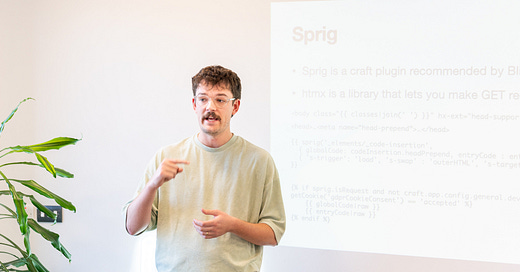The Technology Is Not the Community
Community strategy often starts in the wrong place: platform first, people second.
It’s a trap that even experienced teams fall into, the belief that the right tool will solve engagement, growth, or retention problems. But as Todd Nilson, founder of Clock Tower Advisors, put it plainly: “The technology is not the community.”
Technology is the Building - Not the Belonging
A community platform is infrastructure.
It’s walls, rooms, and digital corridors. But what makes it thrive is the people within it, and the sense of purpose that brings them together.
This echoes Good to Great by Jim Collins: “Technology is an accelerator, not a creator of momentum.” A well-selected platform can enhance what’s already working. But if your core offering lacks value or clarity, no amount of features will fix it.
Too often, organisations re-platform in search of a magic bullet.
They’re swayed by slick demos or niche features… expecting transformation. But as Nilson warns, “You're still gonna lose some of that momentum when you change.” Replatforming should be a strategic decision, not an emotional reaction to stagnation.
Community Starts with People, Not Product
A far greater investment than platform choice is the people who steward it. Time and again, communities falter not because of bad tools but because there’s no one leading the charge.
The community manager role is often underestimated.
One person is expected to manage engagement, deliver growth, report metrics, champion internally, and sometimes even handle social media. It’s no wonder burnout is common with CMs.
The priority should be clarity.
What does the business expect from community? Is it retention? Conversion? Advocacy? Alignment between business goals and community outcomes is essential, not just for demonstrating ROI, but for securing budget, hiring support, and keeping your CMs sane.
When Engagement Dips, Don’t Make Noise - Listen
It’s tempting to respond to a quiet community with more content, more events, more noise. But throwing spaghetti at the wall rarely works. Smart leaders pause. They look for patterns. They reach out to dormant members and listen before they act.
Sometimes the slowdown is due to external shifts. Other times, the value exchange has simply faded. When a community feels like a “nice to have” rather than a “must have,” attention drifts elsewhere. The solution isn’t always more activity, it’s deeper relevance.
Technology should serve the community, not define it. The platform is not your product. Engagement isn’t about volume. And scale without trust is noise.
Communities don’t thrive because of tools. They thrive because people are seen, listened to, and given space to contribute.
That’s not something you can configure in a settings menu.
You can listen to the full episode on the Digital Community Leaders Podcast.




